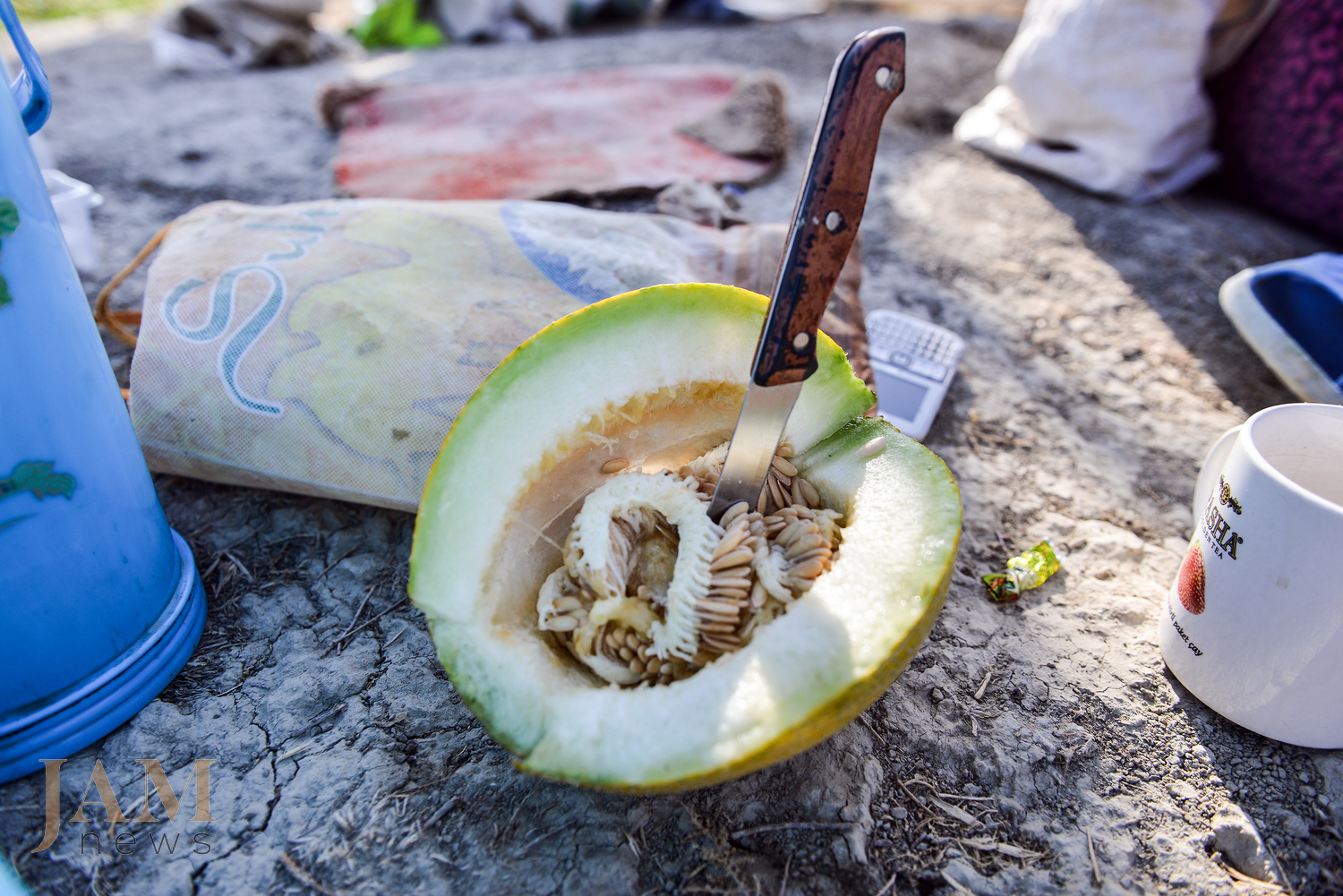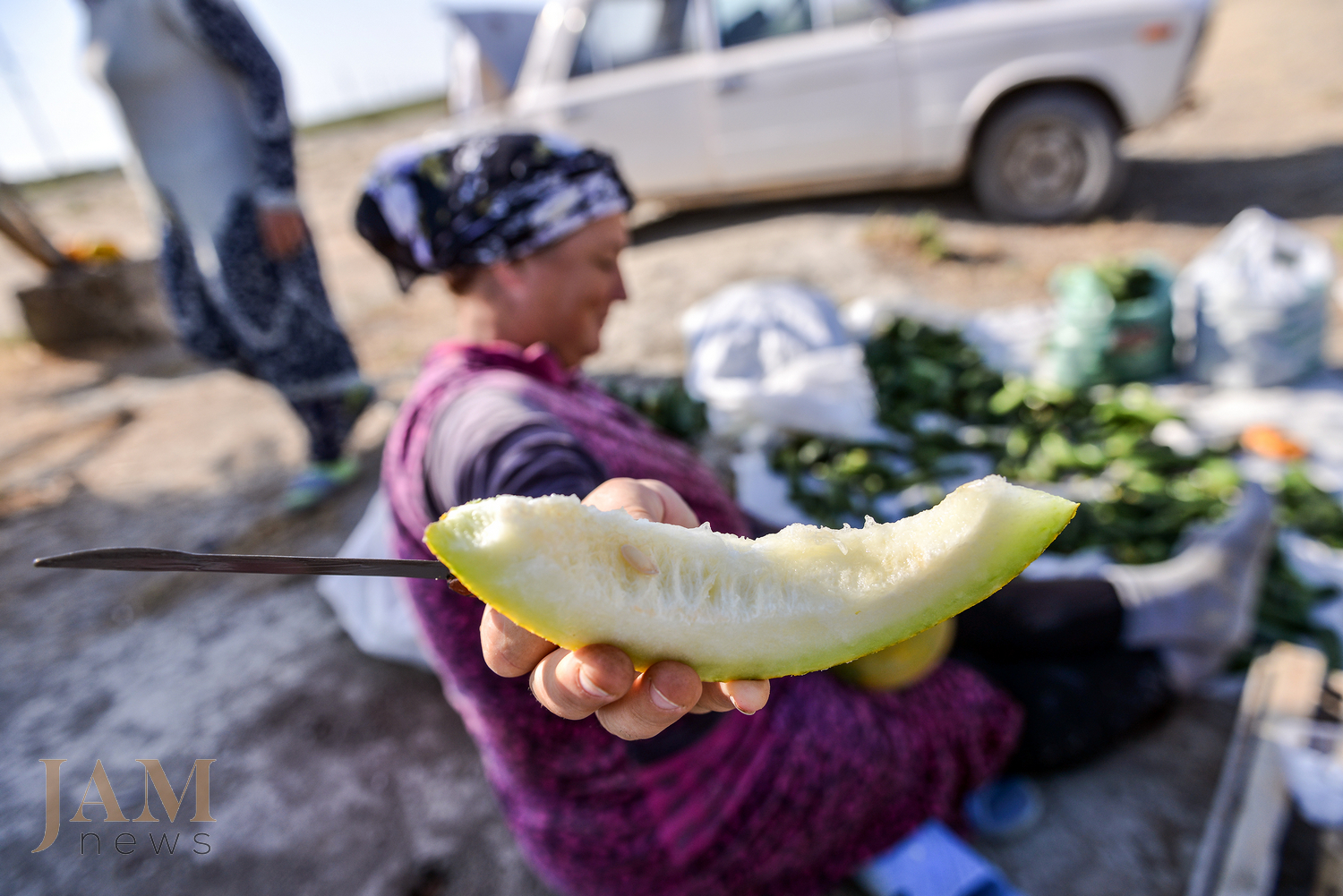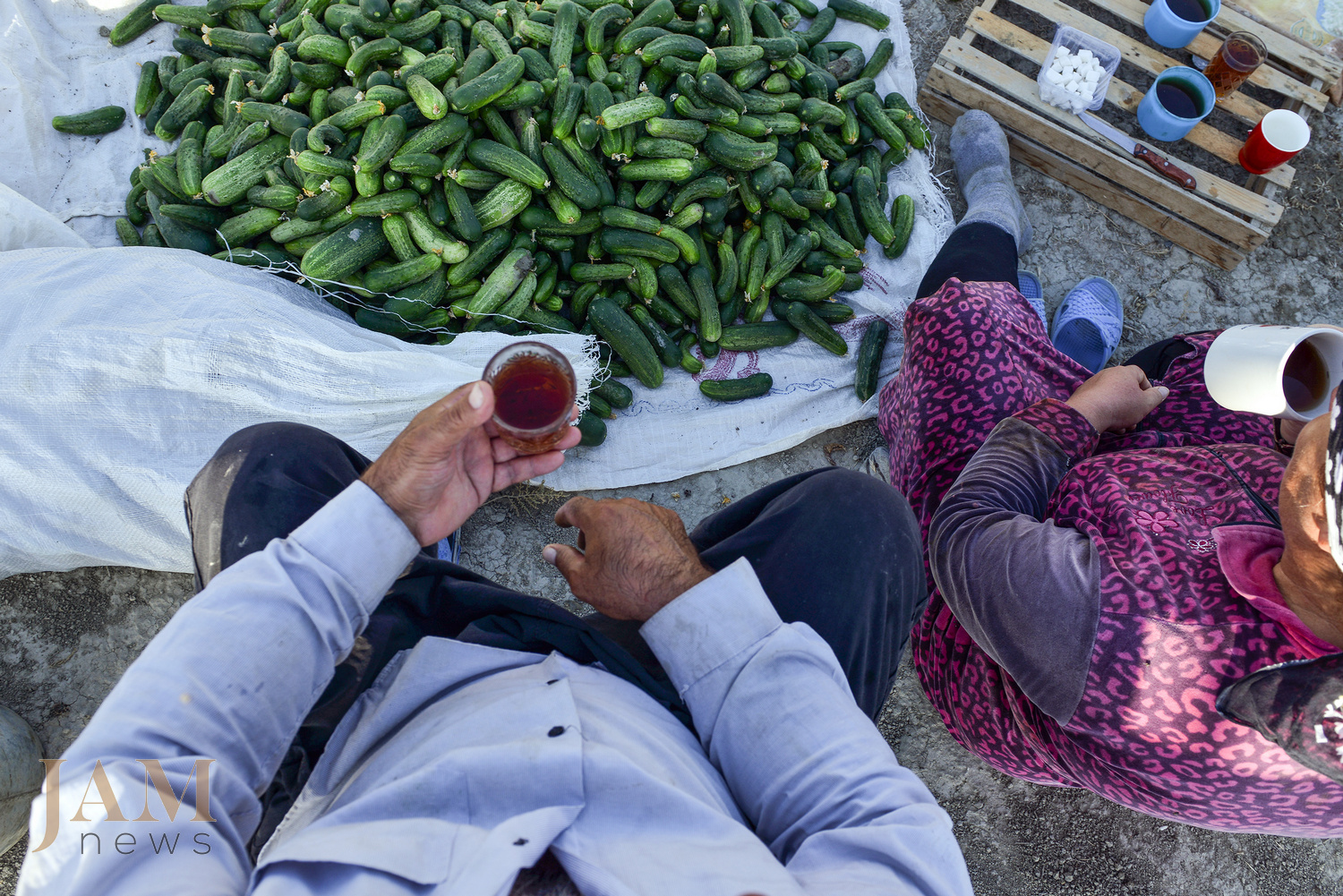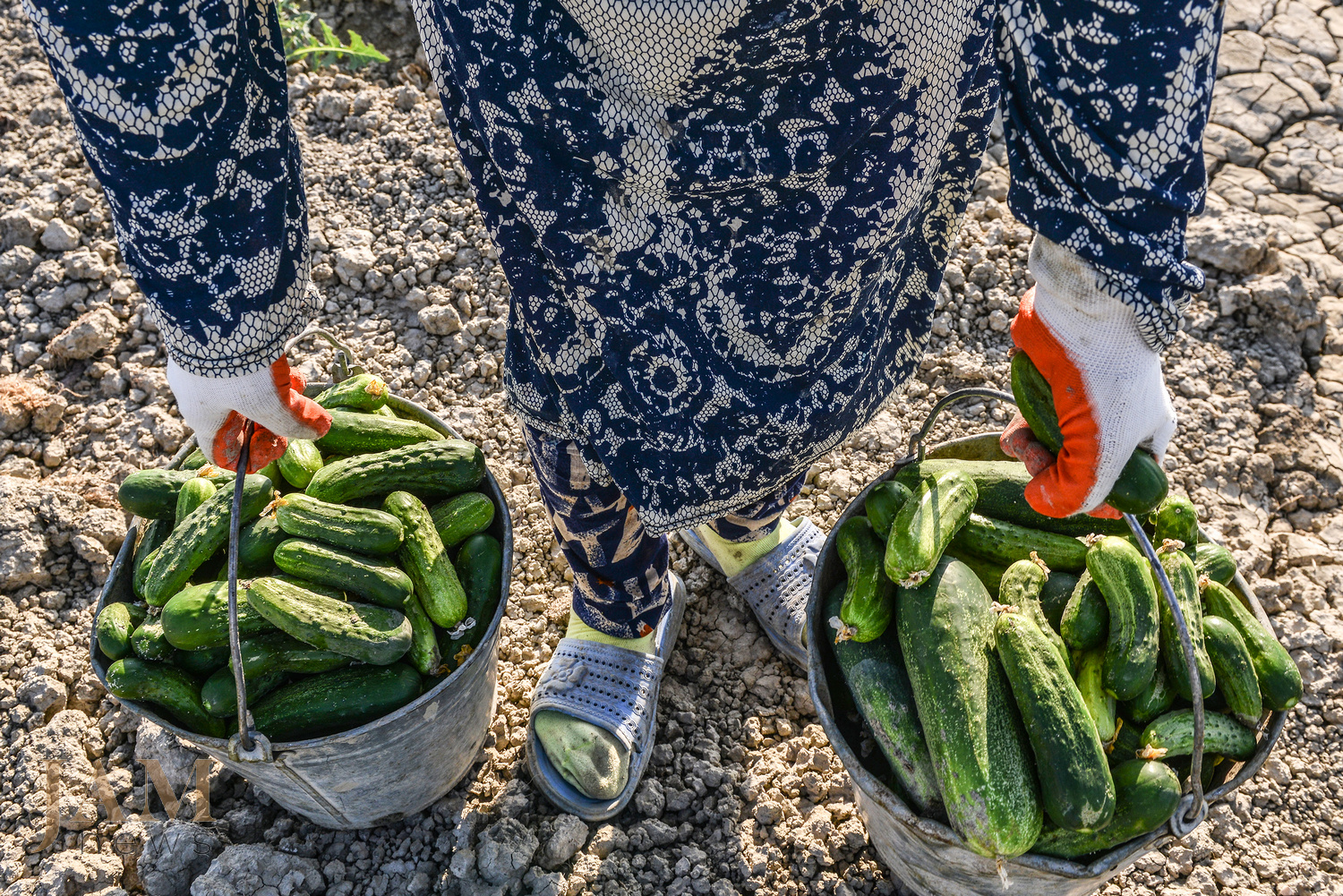How and from whom Azerbaijani farmers protect their watermelons
Uncle Aziz lives with his family in Kilyazi village in the Khizi region of Azerbaijan. The family supports itself throughout the year by raising cattle, but summertime is the season when they cultivate cucumbers, watermelons, and cantaloupes. This year Uncle Aziz planted a plot approximately two hectares in size.
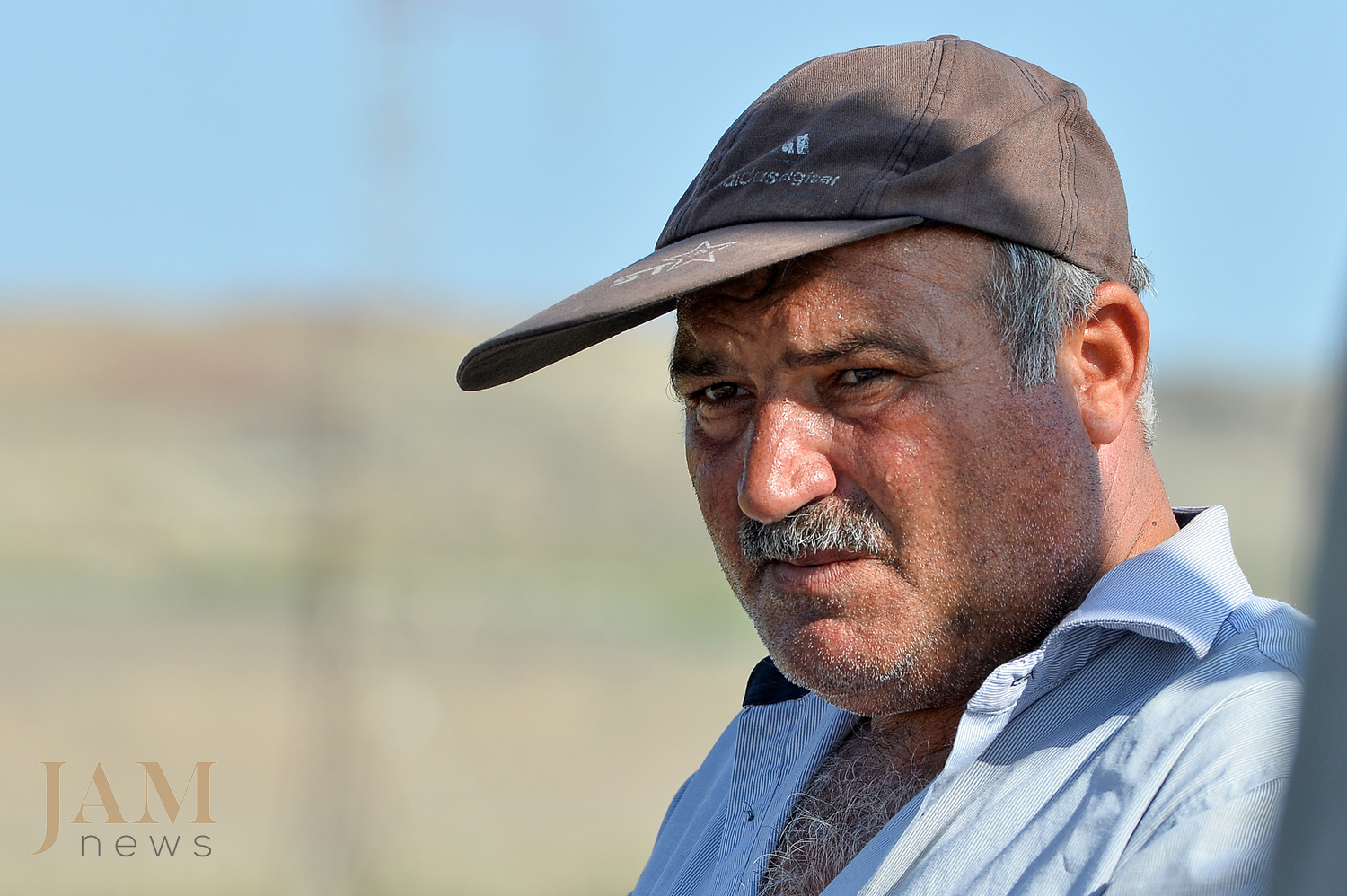
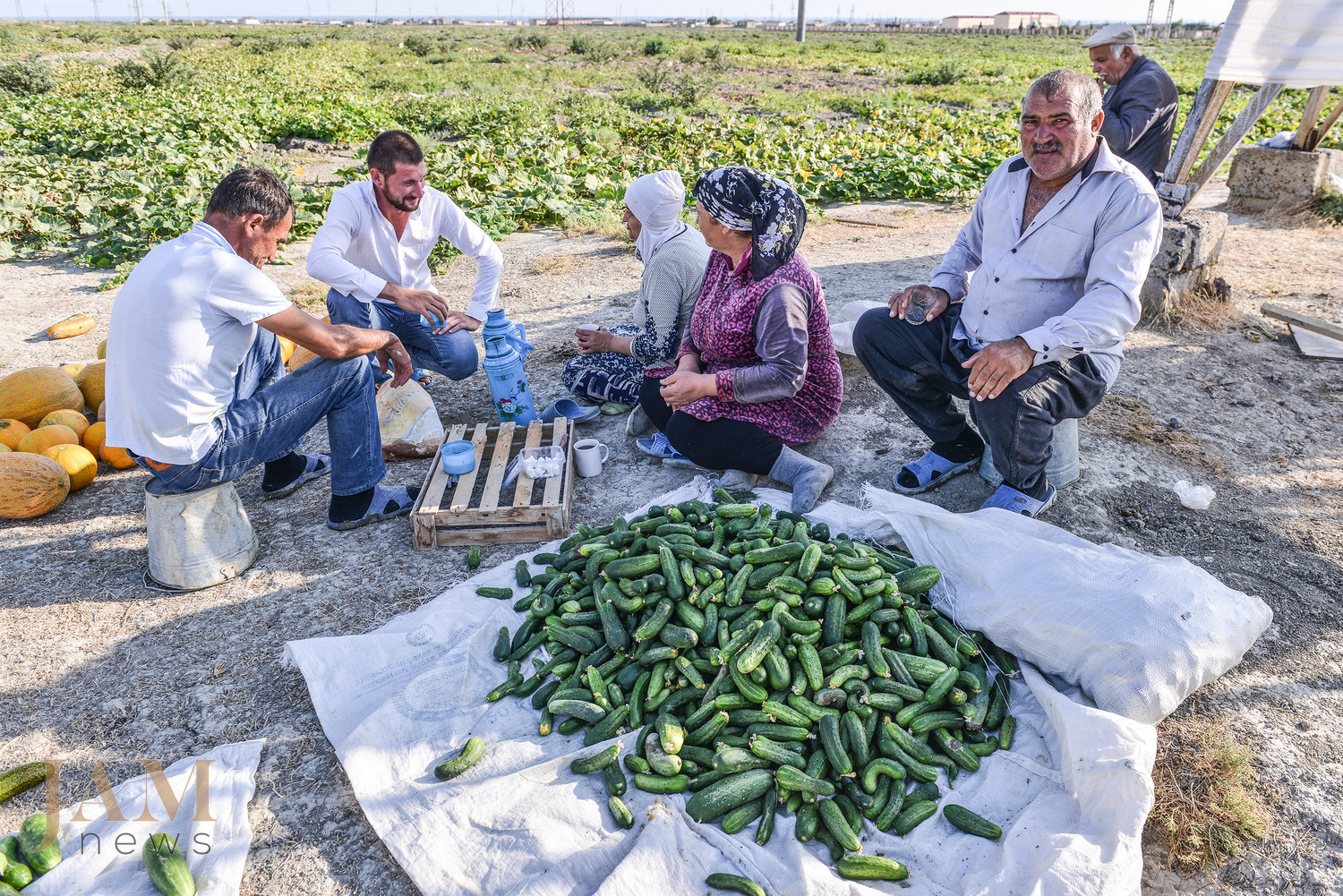

“We are six people, and we are already here by 5am, everyday. We water the patch, harvest the melons, load them up in cars and sell them right here on the side of the road.”
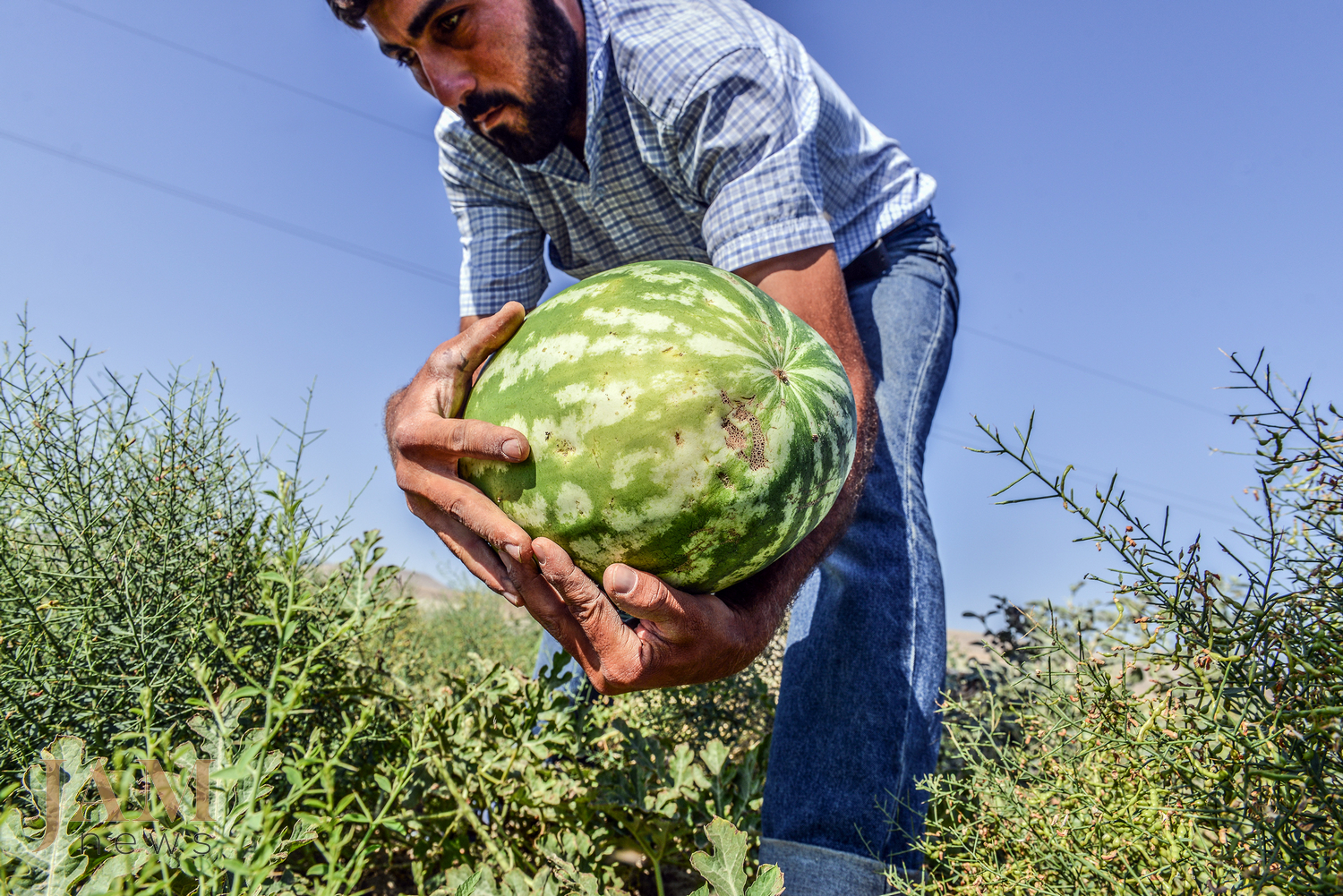
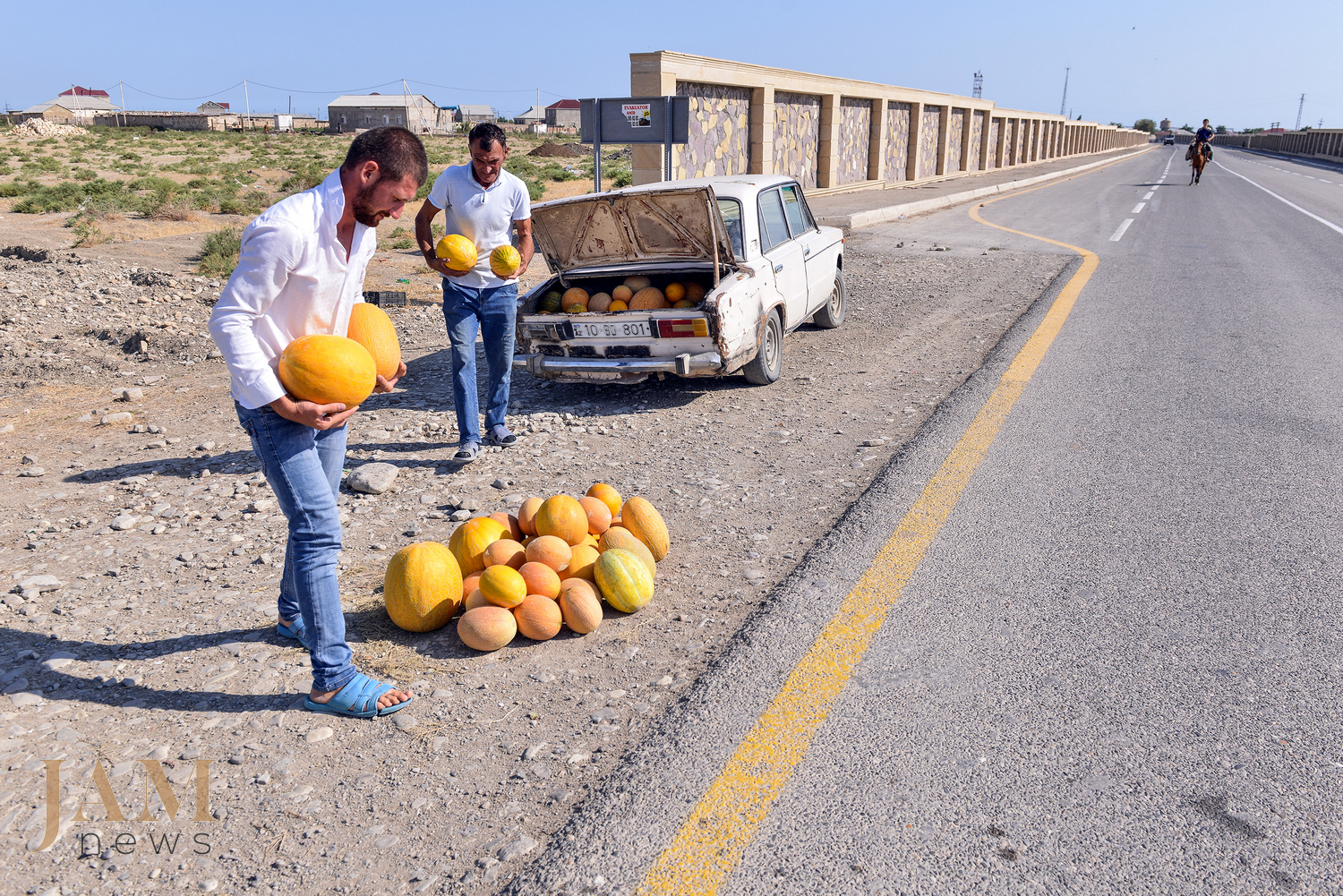
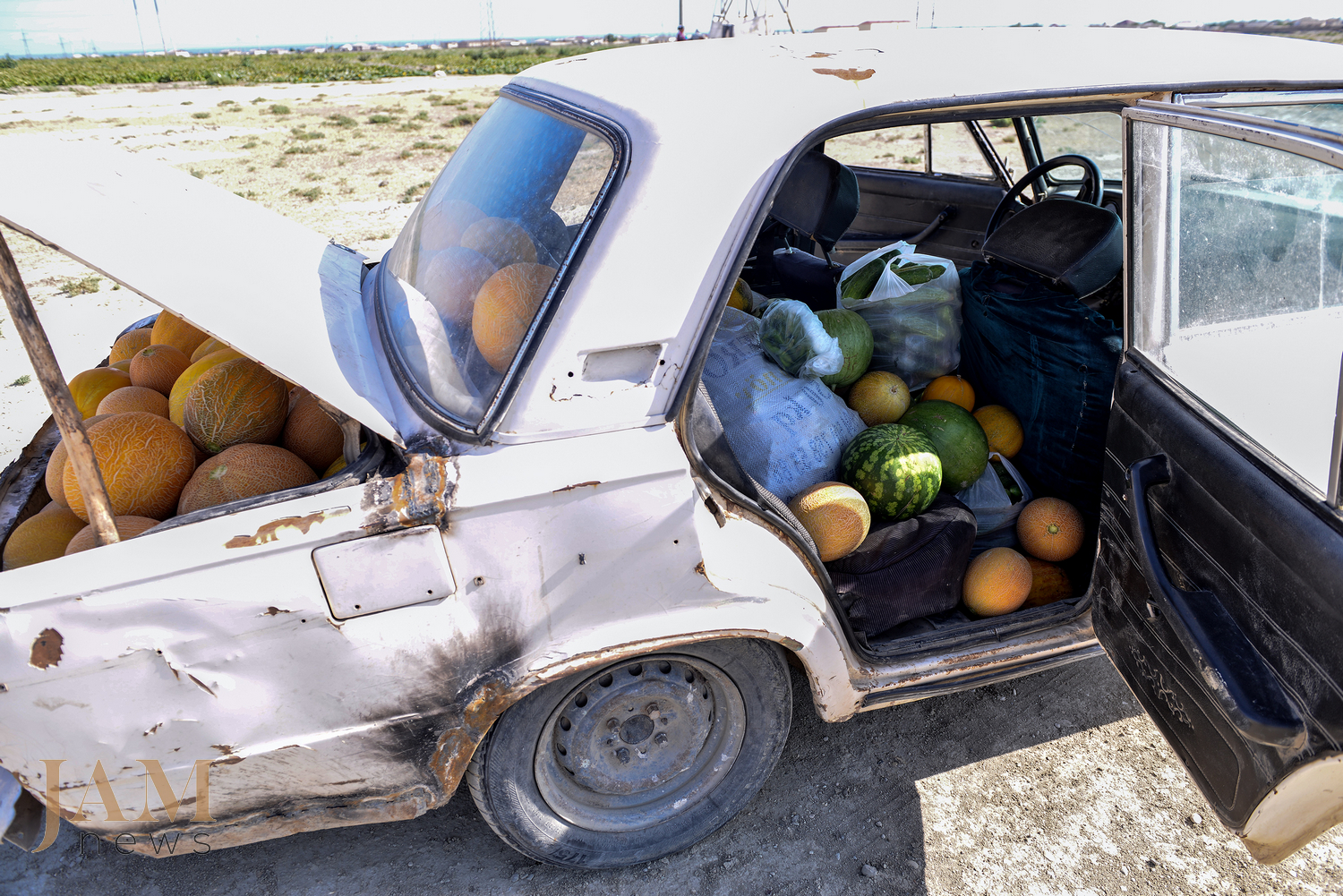
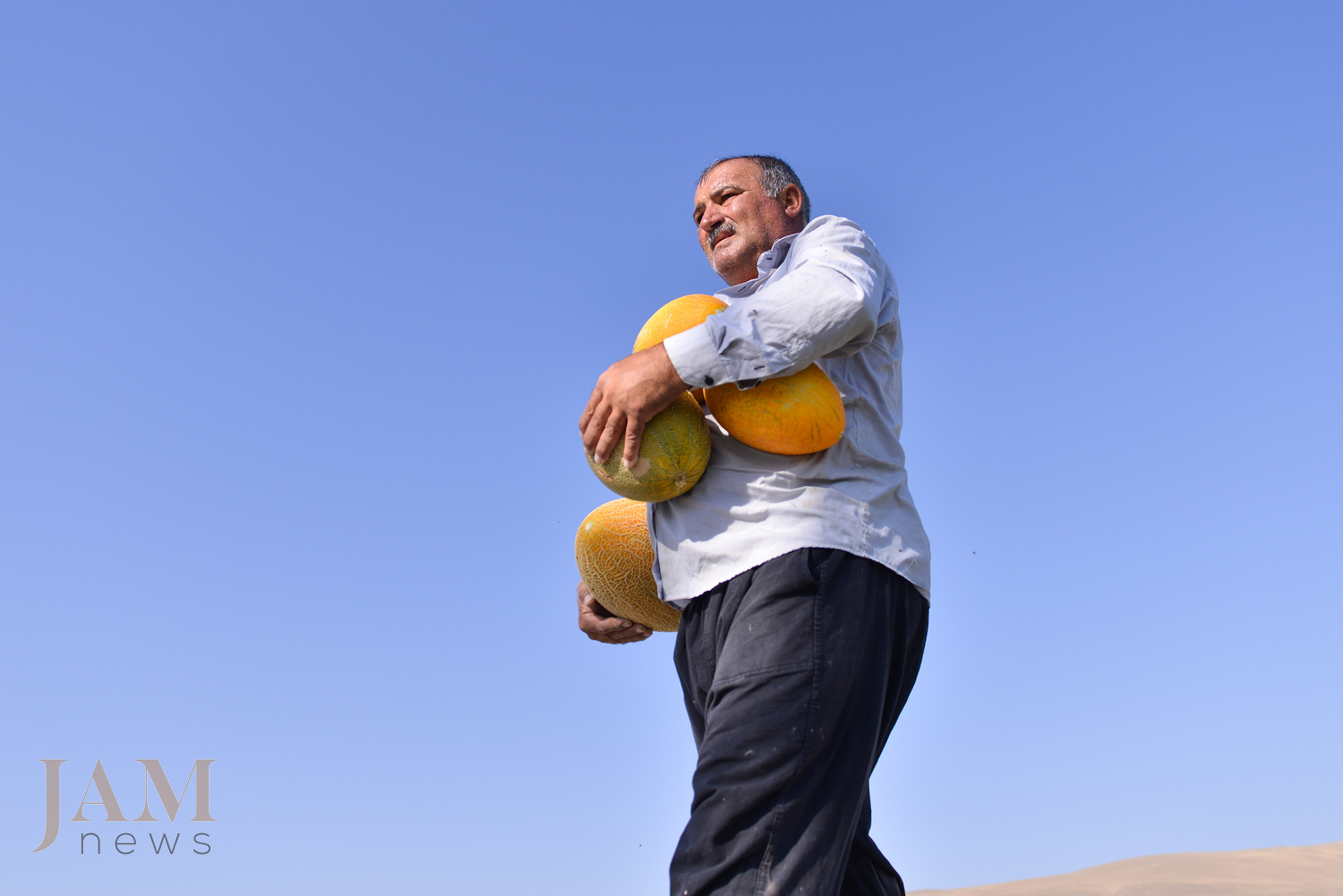
“Once, I couldn’t sit in the field all day because it was so hot. What’s more, the melons were not ripe just yet, so there wasn’t much work to do. I came back in the evening, and I saw that the rows were full of cows and that they were all gobbling up my melons. I started to chase them away one by one, but I was alone, and there were many of them. While you chase one away, the others continue eating. Plus they stomped all over as they were leaving. The thing is, if you complain to the owner of these animals, they’ll just say: ‘Listen brother, since you planted something you should guard it so that no one will touch it’.”
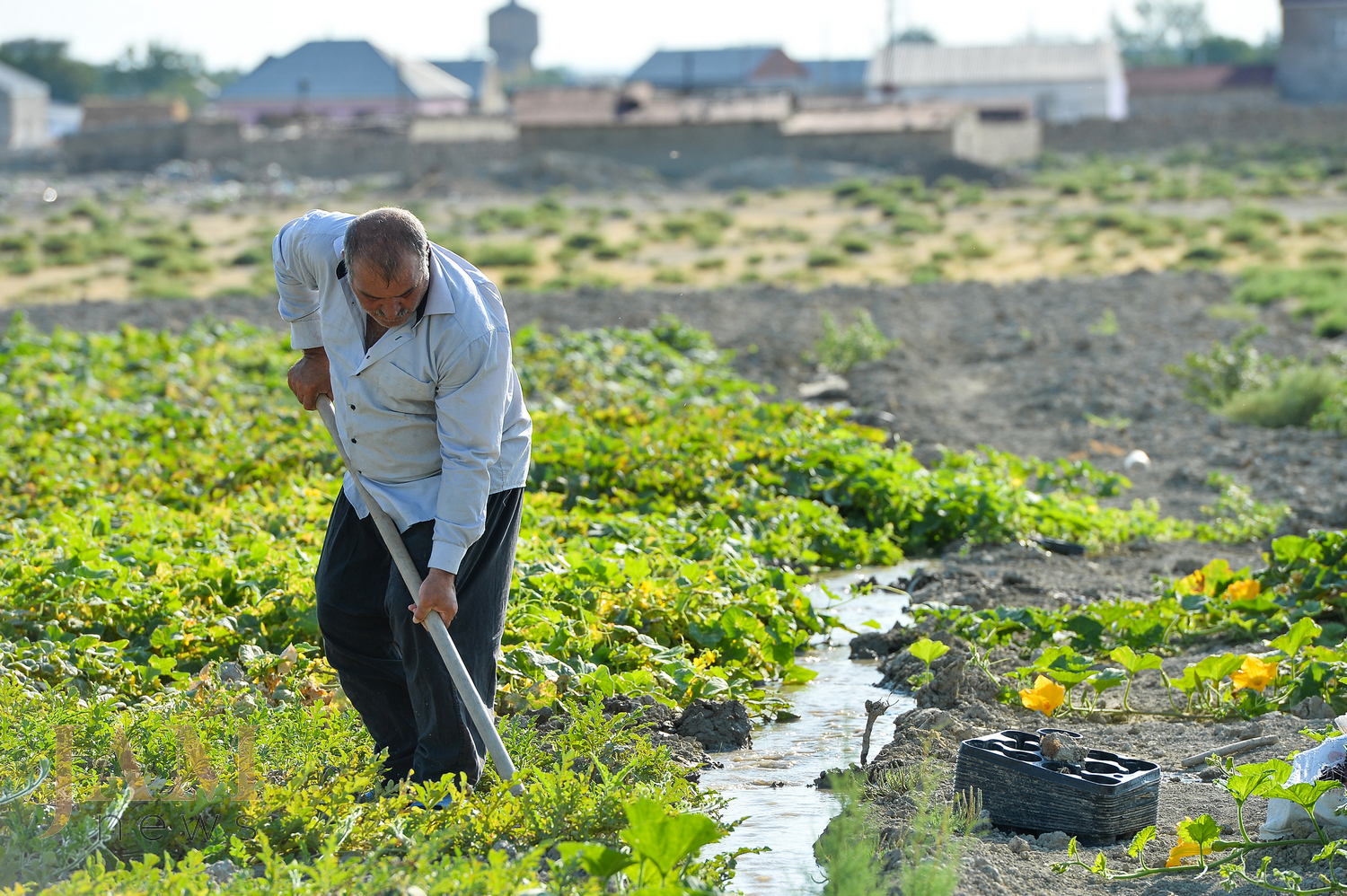
“You also have to guard the patch from jackals and wolves. I used to guard it at night during planting season, but still, it’s not always possible to protect the melons from animals.
“Once we had an especially large harvest, so I guarded it at night. I was sitting up in the attic and lit up the plot with a flashlight to check up on it from time to time. Suddenly I noticed that a few jackals made it onto the patch. I started yelling and throwing rocks but nothing helped. Then I had to forget about the melons because I was afraid the jackals might attack me. There wasn’t anything I could do, so I sat quietly and waited in the attic until they had eaten enough.
“I came down in the morning and saw that they bit into 40 to 45 melons. After this, I always took dogs with me. But now things like this rarely happen. I’m planting on this plot for the first time, and it’s close to the village so the animals are afraid.”
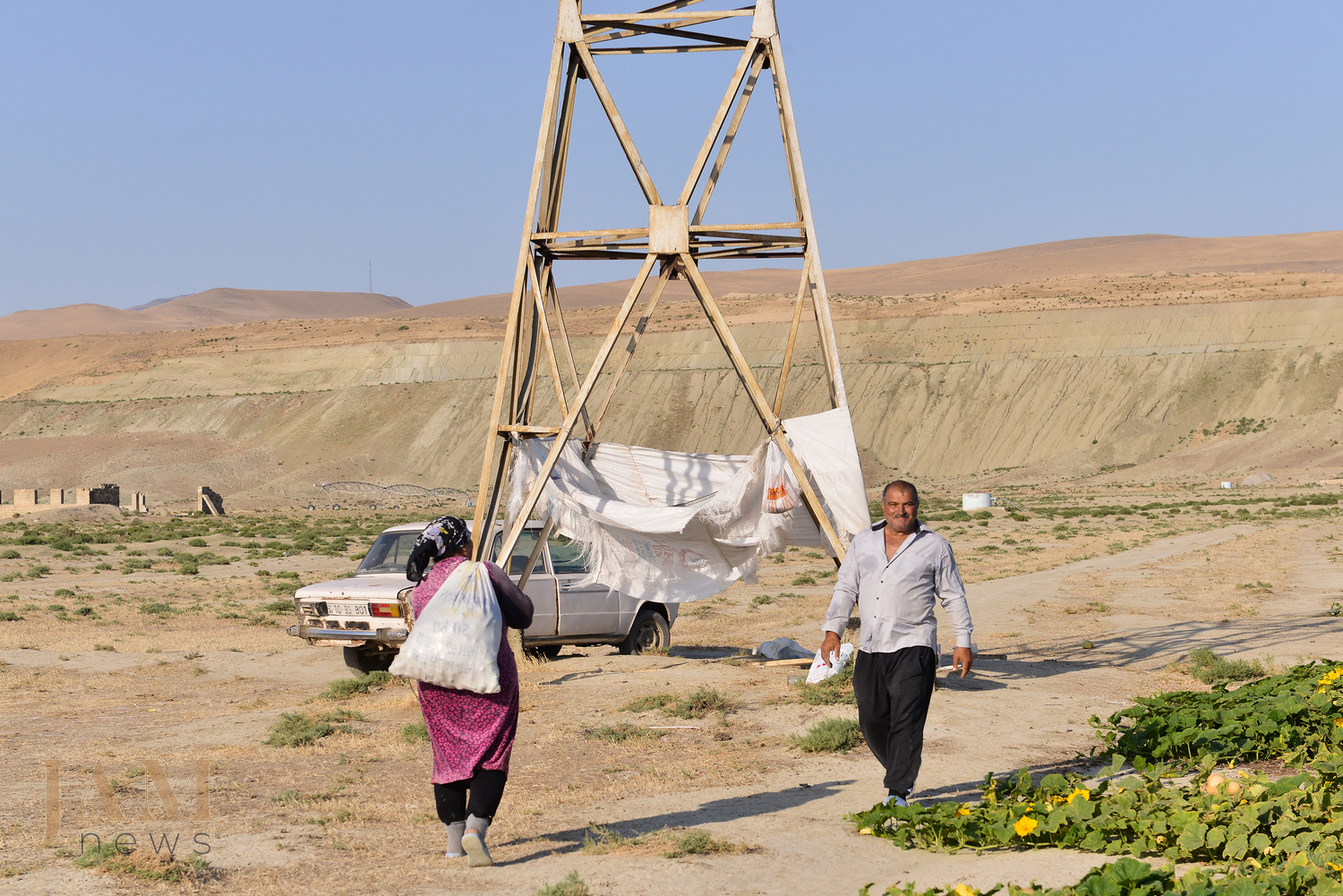
“We harvest the melons in the morning, then load them into the car, and sell them on the side of the road. Once, a man stopped to buy a watermelon. He asked me if they were good and what the price was. ‘Yes,’ I said, ‘they are good. No artificial fertilizers or chemicals. We only use fertilizers against insects but not to grow the melons bigger’.
“He said: ‘Cut one open, let’s see inside.’ I did, and the melon turned out to be bad. He said: ‘Okay, it happens, let’s try another.’ I cut another one open, and the same thing: no taste. The customer looked at me and said: ‘You said they tasted good?’ I felt ashamed and didn’t know what to say. He took out a 10 manat bill and gave it to me, saying: ‘Never lie, if your melons are tasteless just say so.’
“But these melons were actually not my melons, they came from my neighbour’s plot. It’s just that he was busy that day, and asked me to sell his melons along with mine. So then I suggested that the customer cut open a cantaloupe to try. As I was cutting it, I thought: ‘What if this one is also bad?’ That would have been a final disgrace for me. But it turned out to be delicious. He bought 20 whole kilos of them.
“I weighed them, put them in his car, but refused his money, no matter how much he pleaded.
“I said: ‘Let this be compensation for the water melons.’ This man has been buying cantaloupes from me ever since. The thing with watermelons is that you never know what’s inside. Sometimes one plant can produce both tasty and tasteless ones.”
